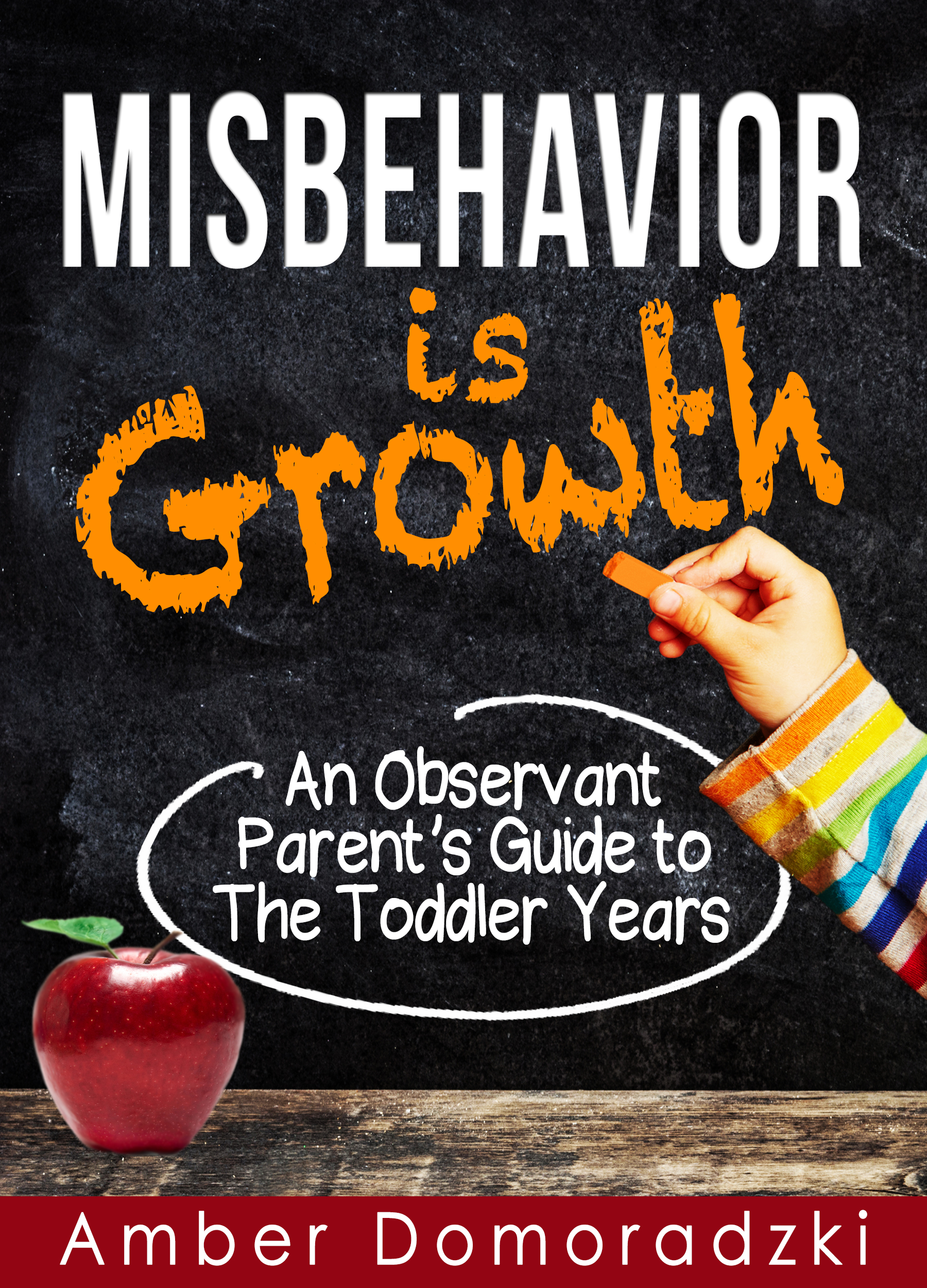I document age-related childhood difficult behavior and probably the #1 question I get is how to deal with caregivers who deal with a person’s children during a difficult stage. A child might start biting at school or hits their grandparent. Parents usually understand it’s a stage and work with a child, but the child just did something harmful to someone else, now what?
This issue is near and dear to me. It’s the main point of my work: I want people to understand childhood “misbehavior.” The idea behind my book series about this, Misbehavior is Growth, is that children are mentally growing during these difficult times. Therefore, go to them with love and comfort. Further, these times are developmentally critical. We can use them to teach them skills and give guidance. Each milestone is an opportunity. Children leave no doubt about their presence and their need for us!
The problem is real. I read once (an article which I can’t find but I’ll continue to look for) that when children who were punished the most in kindergarten were analyzed, it was found that they were all born in the same birth month. The authors concluded that this means they were likely in an age-related stage at the time of punishment. It actually infuriates me to think that children are punished for what is normal development. (I am opposed to punishment anyway and this especially infuriates me.) But it adds confirmation to what my work says: that even one month matters, especially around those kindergarten years.
I want to work on it on my end and reach out to daycares and schools and show them how my work can help them and their customers. I asked a group of people once if they would like to send their child to a school that understood the milestones. My work documents both age-related difficulty and the new mental advancements following this age-related difficulty. The idea is that the difficult stages are when the brain is growing and everything goes bonkers inside a child at those times. In such a school, the staff would be prepared to deal with this “misbehavior” in loving ways. And they would also be ready with activities to feed the new mental growth. People’s answer was a resounding “Yes!” they would want to send their children to such a school.
If you are in the position, please send my work to interested in schools. It is found here at my website, TheObservantMom.com, under “Child Development.” Please see my first book about this Misbehavior is Growth: An Observant Parent’s Guide to the Toddler Years, in which I outline the milestones from 18 months to 3 years and describe activities you can do with children at that age, including a reading program. I have many other ideas for the preschool and early elementary years. I am working on those books now, but in the mean time, my website has a “Thriving” section for each milestone in which I am slowly building educational activities attached to each milestone. If you want to design a school around this, I am, at this time, happy to give a free phone consultation of my work in the effort to get it up and running.
I also want to help work it from the other end, which is the interface parents have with other caregivers. I like to tell success stories here on my blog. The thing is that I homeschool and so I don’t have many stories to tell about dealing with other caregivers. So I’m reaching out: would you tell me of a success story in this area? I’d love to include it in this blog to help others.
Thanks. Happy parenting (<–I mean that!) and stay strong!
See my book Misbehavior is Growth: An Observant Parent’s Guide to the Toddler Years
